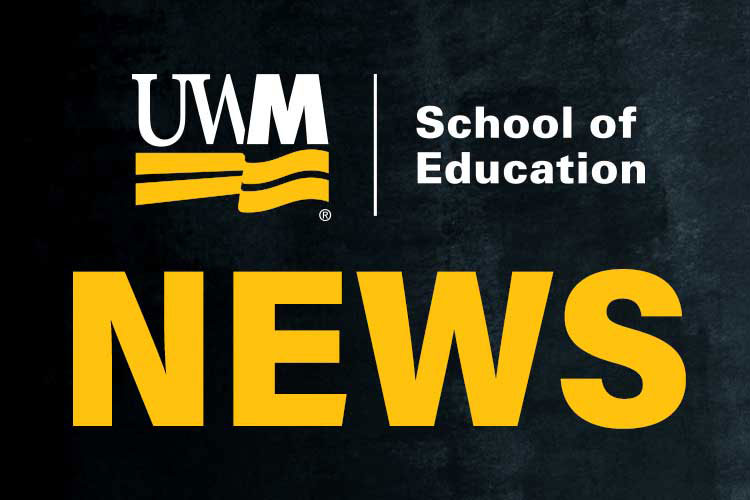The Women’s Giving Circle funded projects in 2022 designed to improve teaching and learning within the field of education. At the group’s luncheon meeting on June 23, members heard about some of the results of the 2022 projects.
The Women’s Giving Circle was founded in 2006 to bring together women alumni and former and current teachers of all ages who pool their gifts for greater impact and keep themselves current about education through their promotion of the School of Education and its educational research.
The 2022 grant recipients designed a variety of projects and research to improve the teaching and learning experience.
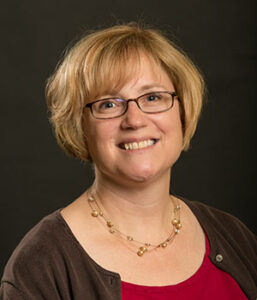
Jenny Brownson, senior lecturer for the elementary and middle education program, designed an effort to support and mentor teacher candidates. The grant, which ran from February to May 2022, supported a workshop for cooperating teachers to help them coach, mentor and evaluate the student teachers with whom they work.
This workshop supplemented the existing Cooperating Teacher Verification Workshop, and focused on working with adult learners, supporting teacher candidates with social-emotional learning, and evaluating a framework that pays attention to the gap between the student teacher’s desired ability and their current ability. The workshop also looked at ways to address equity issues in the classroom, identifying and cultivating culturally relevant teaching, and mentoring student teachers to use a social justice perspective in their teaching that addresses inequity in the community and in the students’ own experiences.
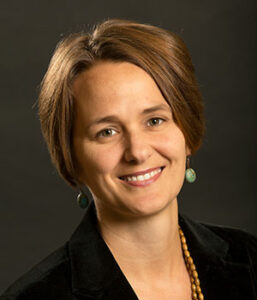
Candance Doerr-Stevens, associate professor of literacy education, looked at ways of promoting teacher resilience through restorative circles in a project that ran from January to July 2022.
The ongoing uncertainty of the pandemic and other stresses have created uncertainty for both teachers and students planning to become teachers. With her project, two teacher preparation programs, English education and elementary education, piloted the use of restorative circles in selected courses to promote teacher resilience.
The enduring COVID-19 pandemic has created continual uncertainty for teachers and students.
Restorative circles, also known as “Talking Circles” and “Peacemaking Circles” use a structured framework for conversation to build relationships, create safe spaces, and address conflict and crisis within a community.
The project involved hiring a restorative school strategist to facilitate circles, engaging teaching and learning instructors to practice restorative circles with their pre-service teachers; encouraged the circles with three cohorts of pre-service teachers from the two programs, and assessed the impact of the restorative circles. The goal is to fully immerse both UWM instructors and students in the practice of restorative circles as part of their preparation for teaching.
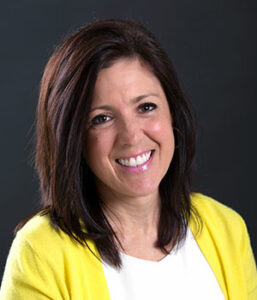
Angel Hessel, distinguished lecturer and director of student teachers in the elementary education program, is working to give student teachers the tools to build classroom communities. The work is carried out through the Peace Learning Curriculum offered in collaboration with the Peace Learning Center of Milwaukee.
The curriculum, which was offered in the spring 2022 semester and will be continued in the fall semester of 2022, teaches participants tangible age-appropriate tools to encourage inclusion in the classroom community, develop skills for productive communication and tools for nonviolent conflict resolution.
Teachers need to maintain a positive and productive classroom climate to build a classroom community. At the same time, disruptive student behavior is one of the largest drains on engaged academic time. A 2015 study showed many educators reported they felt inadequately prepared for effective classroom management.
The Peace Learning Curriculum, which has been offered as part of student teacher preparation for several semesters, helps aspiring teachers feel better prepared, according to the comments of those who complete the workshop. One wrote: “I will use everything I learned from this training in my classroom. An added benefit is having access to the Peace Learning Curriculum, so that I can use the strategies throughout my teaching career.”
The Foundations of Reading Test (FoRT): Tutoring to Success project is designed to help students prepare for the FoRT test. Annie Marcks, literacy instructor and assistant FoRT coordinator will lead the effort. The grant will allow the literacy team to provide small group tutoring to students who are taking the FoRT test for the first time. The test is required for most teachers seeking a Wisconsin teaching license. While the School of Education has offered tutoring to students taking the test, this project would take a proactive approach based on diagnostic tests and instructor feedback.
Students taking the FoRT will be offered the opportunity for small group tutoring. To ensure students who have taken the FoRT and not passed also get the instruction they need to be successful, spaces are reserved for them as well. Tutoring to increase students’ scores on the FoRT has had remarkable results and tutoring prior to the first time a student takes the FoRT has shown to be beneficial as well. Students who successfully complete all tutoring sessions will receive a scholarship to take the FoRT.
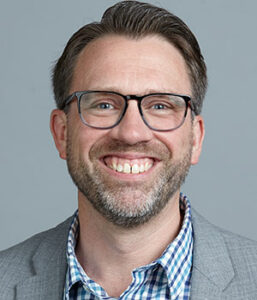
Jeremy Page, assistant dean of Student Services is leading the SOE Jumpstart First Year Experience, which is now in its third year. The class is designed for students in the School of Education, providing them with resources that help them transition to campus and college.
Students meet weekly in groups of 15 to 30 to learn what it takes to be successful academically, socially and emotionally. This allows first-year students to connect with the curriculum, faculty and staff of their intended majors during their first academic term.
Currently, the School of Education offers few course-based opportunities to connect first-year students to the curriculum, faculty, and staff of their declared or intended majors during their first academic term. Retention rates of first year students in the SOE is approximately 75% (UWM Office of Assessment & Institutional Research, 2020). This project coincides with the significant number of four-year institutions that offer these experiences.
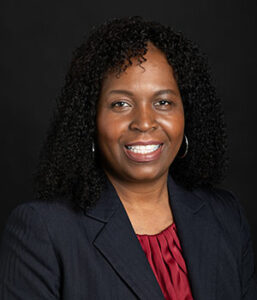
Denise Ross, associate professor of education, focused her project on developing a curriculum for the new applied behavior analysis certificate program. This is a graduate certificate for autism professionals scheduled to start in the fall of 2022. The project will involve seven students who will meet bi-weekly to align the course syllabi with university and professional requirements and infuse equity activities into the curriculum.
Applied behavior analysis is an evidence-based approach to teaching children with autism and other disabilities. It is an important field because of the number of children with autism is increasing in Wisconsin and across the country. There are currently only two ABA certificate programs at Wisconsin universities despite the need for behavior analysis professionals in the state. UWM’s program will incorporate issues of equity into its curriculum by preparing educators to provide ABA services to underserved racial and socioeconomic groups. The grant will also help develop and purchase digital library materials for the program.
